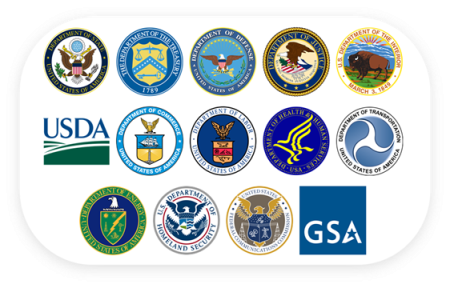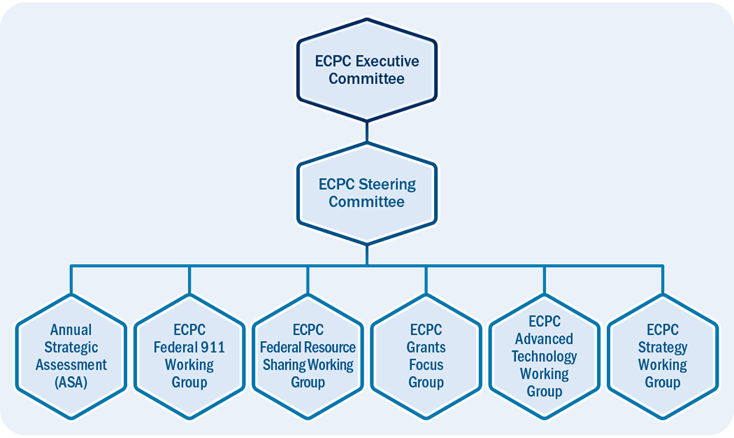Emergency Communications Preparedness Center (ECPC)

The Emergency Communications Preparedness Center (ECPC), administered by the Cybersecurity and Infrastructure Security Agency (CISA), is the federal interagency focal point for interoperable communications coordination. Its members currently consist of fourteen departments and agencies who represent the federal government’s broad role in emergency communications, including regulation, policy, operations, grants, and technical assistance.
The ECPC is comprised of 14 federal departments and agencies: U.S. Departments of Agriculture, Commerce, Defense, Energy, Health and Human Services, Homeland Security, the Interior, Justice, Labor, State, Transportation, and the Treasury. The Federal Communications Commission and the General Services Administration are also members of the ECPC.
Background
The ECPC was developed following the recommendations from the 9/11 Commission Report and lessons learned from Hurricanes Katrina and Rita. Congress identified the need for stronger coordination and national leadership to address gaps in emergency responder’s abilities to communicate across jurisdictions and functions. To address these issues, Congress established the ECPC (Section 671, Pub. Law No. 109-295).
The Executive Committee and Steering Committee
The Executive Committee (EC) is made up of senior officials responsible for emergency communications or for policies related to emergency communications from each member department and agency. The EC meets annually to approve significant work products, advise on strategic direction, and address recommendations which require senior level coordination.
The Steering Committee (SC) is the managing committee of the ECPC and meets at least quarterly per year. The SC is responsible for strategy and work plan development, prioritization of activities, sponsoring projects and communicating with sub-groups, and other external user forums to address challenges for consideration and approval by the EC.
ECPC Sub-Groups
The ECPC has contributing bodies, select committees, working groups and focus groups which are assigned taskings from the Steering Committee. These groups are led by representatives from the member departments and agencies and contribute to the overall subject matter expertise of the ECPC. The current sub-groups of the ECPC are:
- The Annual Strategic Assessment (ASA)is an annual report to identify progress and remaining challenges in federal emergency communications interoperability for Congress, outline opportunities for federal coordination and action in the future and prioritizes National Emergency Communications Plan (NECP) guidance for improving emergency communications nationwide.
- The ECPC Federal 911 Working Group collaborates with federal 911 emergency communications stakeholders to share best practices and develop resources to help agencies enhance emergency communications. Learn more about the ECPC Federal 911 Working Group and discover resources to help federal agencies prepare for Next Generation 911 (NG911).
- The Federal Resource Sharing Working Group is designed to discuss opportunities for the sharing of federal emergency communications resources and identify challenges and approaches to improving interoperability between federal departments and agencies.
- The Grants Focus Group acts as the federal coordination point to improve consistency and standardization among federal emergency communications grant programs.
- The Advanced Technologies Working Group acts as a forum to address advanced technologies and their impact on public safety voice and data compatibility and interoperability.
- The Strategy Working Group is responsible for tracking specific priorities as recommended by the ASA and the NECP as it advances toward goals and reports on progress in the ECPC Strategy and FY Work Plan.

Clearinghouse
The ECPC serves as a clearinghouse for the sharing of intergovernmental information relating to emergency communications. The ECPC established an enhanced version of this clearinghouse, to increase the sharing of intergovernmental information that supports and promotes interoperable and emergency communications. This enables improved efficiency and effectiveness of federal emergency communications coordination programs and helps avoid duplication and other counterproductive efforts among ECPC member departments and agencies.
Contact
ECPC Administrator: Cybersecurity and Infrastructure Security Agency
For membership or other inquiries, contact ECPC by e-mail: ECPC@mail.cisa.dhs.gov




